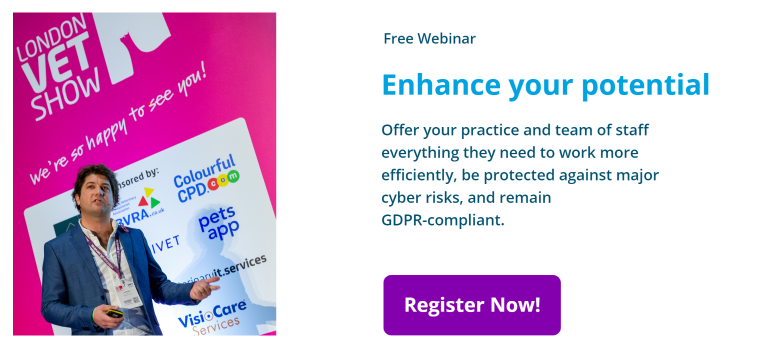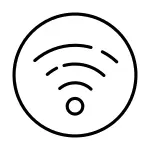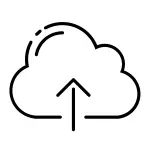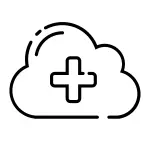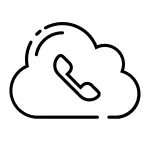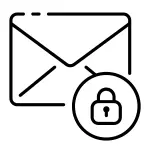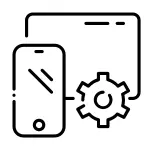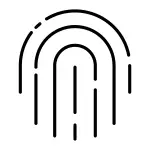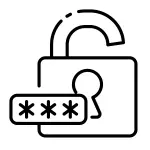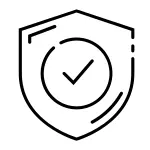Considering how much we all depend on the cloud, it’s surprising how little we know or understand about protecting the information we store on it.
The cloud is great, the ease of having all your information in one place, you can find anything you have stored instantly from emails, photos, to general notes and passwords. Businesses have moved across to cloud infrastructure in their droves and the veterinary sector is no different.
You only have to look at the newest practices opening to see that in a few years, most -if not all- vets will have at least one system that runs on or stores data in the cloud, even PMS vendors are moving their offerings to the cloud!
As far as we are concerned this is only a good thing, in fact we’ve written another blog about choosing between an on-site server or a cloud based system which you can read here.
However, it seems to be a common misconception data in the cloud is inherently ‘safe’, but this just simply isn’t true. If not set up correctly it can provide ample opportunities for cyber criminals to access your systems and your data.
So, considering that 70% of people have experienced data loss due to accidental deletion, disk or system failure, viruses, fire or some other disaster it’s just good sense to back up your cloud. In this article we will explain how the Cloud works, what to be aware of and the consequences of not understanding the importance of backing up the data you store in it.
So how does the Cloud work?
The Cloud is the internet, it is made up of internet servers, so when we use the ‘Cloud’ we are actually just storing our information on an internet server rather than on our computer’s hard drive.
Cloud data is generally stored on individual servers of data centres (think of a digital self-storage warehouse) all over the world. Data centres have become a big business over the past few years as they rent storage space for businesses and individuals to house their data. All data is kept private and is housed within its own dedicated space.
Is your data safe in the cloud?
Cloud storage providers go to great lengths to secure their networks and your data . As the Cloud is a full package service with data is stored across multiple data centres, security is maintained by the vendor which means that in general the security of a cloud solution will always be superior to a local server solution due to their endless budget. This means that the Cloud is one of the safest places to store data, but sadly this does not stop the devastating possibilities of data loss.
Data loss is a scary reality, it can be devastating for individuals, it can ruin reputations and be detrimental to businesses. Sadly, regardless of any protections you put in place it does still happen, so it is vital that we are aware of the importance of protecting our data by backing up the Cloud.
Here are a few ways data loss happens in the cloud:
- User Error
- Without realizing, employees can overwrite important files or delete information that is essential to your business.
- If you have a backup of your cloud you will be able to retrieve previous versions from a specific time or reinstate a document that was deleted. Without back up these would both be lost to you.
- Malicious Actions
- This might seem the least likely situation to you, but we have seen many instances where disgruntled (ex) members of staff have deliberately tampered with the data in their practice’s systems.
- Again, if you have a backup of your cloud you will be able to retrieve previous anything that’s been deleted. Without back up these would both be lost to you.
- Technical Failure
- There’s no getting around it, sometimes technology just fails. For whatever reason, if you have a technology failure, you might find that having an extra copy of your data that is easily accessible is a literal ‘lifesaver’.
- Cyber-Attack
- We aren’t being melodramatic, and we aren’t talking about a small number of cases. In the past year, instances of cyber-attacks on businesses increased by 400%, and its small businesses such as Veterinary Practices that are being targeted – not just big corporations.
- Phishing and Ransomware attacks are amongst the most common.
- Cyber security isn’t at the forefront of the mind of most business owners, in fact the ‘it will never happen to us’ mind set is exactly what created the opportunity for the ransomware attack on the NVA (National Veterinary Associates) in 2019 – which lasted for 4 months and impacted over 400 veterinary hospitals across the US!
No matter how it happens, unauthorised access to protected data affects the confidentiality, integrity, and function of the compromised data. It’s punishable by hefty fines from the ICO and it can be held against you as an individual or business.
At a minimum, if your data is exposed, lost or breached in anyway it can lead to awkward conversations with your clients. At its most harmful, losing access to your data can lead to business closure.
Real World Examples
When it comes to data breaches, there is no industry or size of business which is off limits although some are more common than others. Some of the biggest UK data breaches have taken place in an array of industries, from British Airways, one of the leading airlines in the world to Barts Health Trust which operates just five hospitals throughout London City and East London.
Both of these companies suffered from data breaches with huge consequences, British Airways was fined £183.4 million by the Information Commissioner Office (ICO). For Barts Heath trust you could argue the consequences were even more devastating, as it was not just a fine of monetary value, but a cost to patient health, affecting; operations, radiology, X-rays, scans and much more as well as catching up with the huge backlog from the attack.
But what does it look like when veterinary practices are targeted? Well the most well-known veterinary victim of a cyber-attack is the National Veterinary Associates (NVA) who are based in the US. In late 2019 the NVA who own over 700 animal care facilities around the globe suffered from a ransomware attack.
This attack affected more than half of its properties, caused mass destruction by leaving many veterinary practices without access to their patient records, payment systems and their practice management software. Now look back at the damage caused to Barts Heath Trust with just 5 hospitals and let the scale of the NVA ransomware attack who had just under 400 of their hospitals attacked sink in.
The thing is with Ransomware attacks, if they get hold of the data in the cloud it’s bad. It’s really bad. But the damage is minimised by having that data backed up. The cyber criminals may still have the originals, but when you have a copy stored as backup you will be able to reinstate your systems from this backup, allowing your veterinary practice to continue business as usual.
Cloud Backup We Recommend
It’s not all doom and gloom, the Cloud is a great resource and a way of us storing huge quantities of data, but now you also know the importance of backing this data up.
To make it easier for you there are some great services available to back up your data, and there are tons of options to choose from, each offering something different. It’s important that you take the time to choose the most suitable option for your practice (don’t forget you need a Disaster Recovery Plan too). The service provider you choose should be both reliable and secure, but if you are having trouble finding the best solution for you, don’t hesitate to get in touch with us today.
………………………………………………………………………………………..
As standard we offer backup as part of our Microsoft 365 Protect Package. Our plan provides reliable backup and recovery for Microsoft 365 from Exchange Online, SharePoint Online, OneDrive and Microsoft Teams. It includes unlimited storage space and an unrestricted retention policy guarantee that your valuable Microsoft 365 data will remain fully backed up and recoverable at all times and best of all – it’s protected with industry leading privacy, security and compliance.
